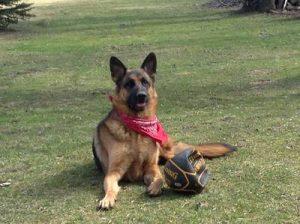
Did you know that according to the Association for Pet Obesity Prevention (APOP), more that 56% of dogs and 60% of cats are classified as overweight or obese. If you are looking at your pet and wondering if it is overweight, here are some things you can check:
- Can you feel the ribs and spine? On an ideal body type you should be able to feel the ribs and spine with a little layer of tissue over it.
- Does he have an hourglass figure? You should be able to see and feel your pet’s waist. It should be clearly visible when viewed from above.
- You should also be able to see the tummy tucked up when viewed from the side.
You may be thinking, “So what? My animal is overweight; there is just more of him to love.” This may be the case; however, pet obesity can cause some serious health problems, and make existing ones worse, which can reduce your beloved pet’s life span and decrease his quality of life. Some conditions are:
- Diabetes
- Heart disease
- Respiratory compromise (difficulty breathing)
- Exercise intolerance
- Osteoarthritis (lameness, joint pain etc.)
- High blood pressure
- Increased anesthetic risks
- Lower immune function
- Cancer
Your Vet may have told you that “Fluffy” should lose a little bit of weight, but did you know that for cats and small dogs 1 lb overweight = 10 lbs overweight for humans? For large breed dogs 1 lb overweight = 5 lbs overweight on a human? Even if Fluffy is only 5 lbs overweight (if we think about it in human weight), Fluffy would be a 50 lb overweight human!
What is the next step for losing weight?
*Feed a specific weight loss food to guarantee the appropriate amount of nutrients, as decreasing regular food could be depriving your pet of its dietary needs.
* Increase exercise slowly
- More frequent walks
- Hiding daily food food portion throughout the house to encourage their hunting instinct
- Throw treats of toys up stairs
- Use food toys or puzzles
* Decrease food intake
- With measured meals
- Keep a food diary
- use a portion of meals as treats for the day
*Consult your Veterinarian with any questions
If you have any questions or concerns about your pet’s weight, talk to one of our team members at Coventry Animal Hospital.
